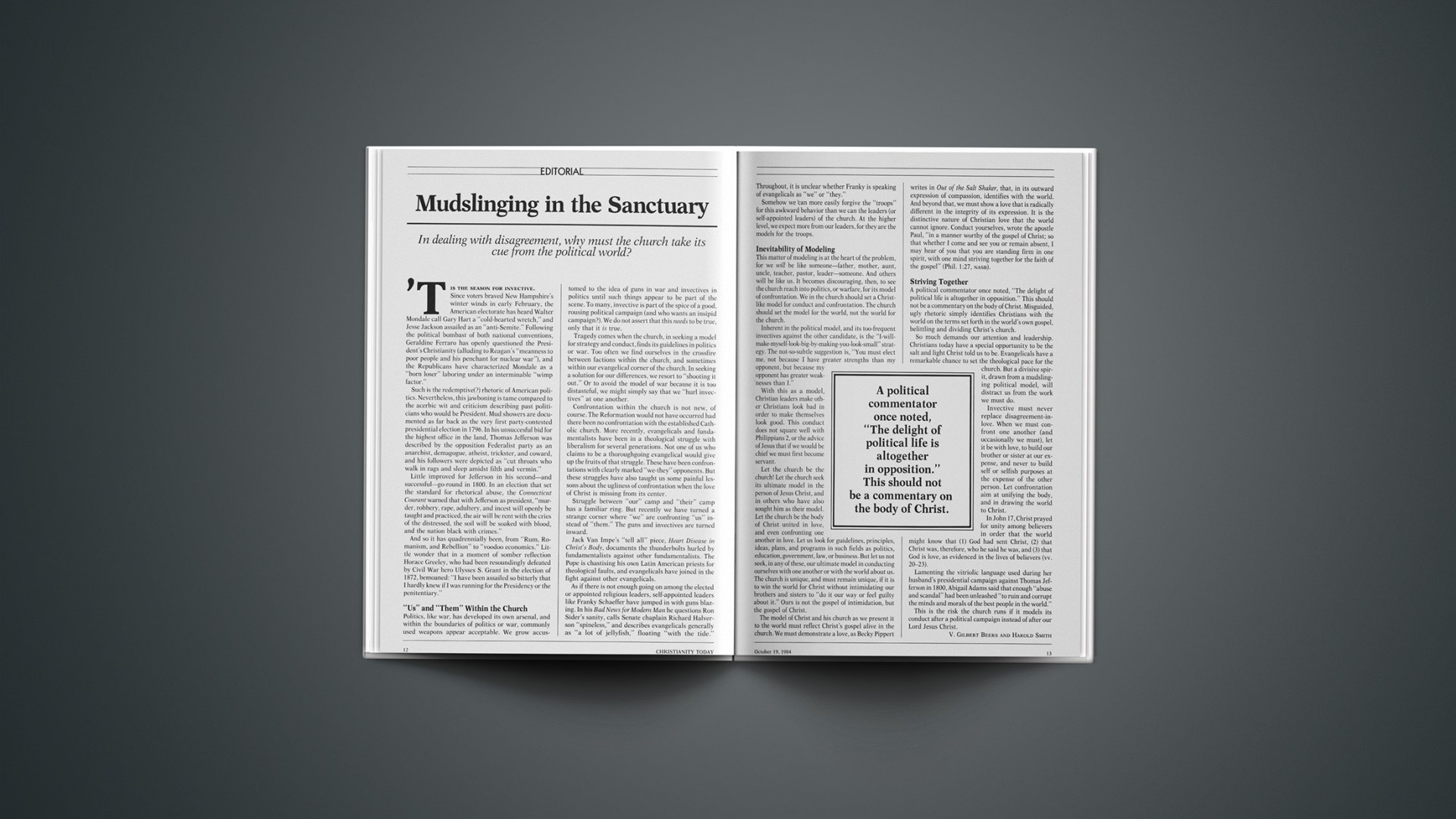In dealing with disagreement, why must the church take its cue from the political world?
’Tis the season for invective.
Since voters braved New Hampshire’s winter winds in early February, the American electorate has heard Walter Mondale call Gary Hart a “cold-hearted wretch,” and Jesse Jackson assailed as an “anti-Semite.” Following the political bombast of both national conventions, Geraldine Ferraro has openly questioned the President’s Christianity (alluding to Reagan’s “meanness to poor people and his penchant for nuclear war”), and the Republicans have characterized Mondale as a “born loser” laboring under an interminable “wimp factor.”
Such is the redemptive(?) rhetoric of American politics. Nevertheless, this jawboning is tame compared to the acerbic wit and criticism describing past politicians who would be President. Mud showers are documented as far back as the very first party-contested presidential election in 1796. In his unsuccesful bid for the highest office in the land, Thomas Jefferson was described by the opposition Federalist party as an anarchist, demagogue, atheist, trickster, and coward, and his followers were depicted as “cut throats who walk in rags and sleep amidst filth and vermin.”
Little improved for Jefferson in his second—and successful—go-round in 1800. In an election that set the standard for rhetorical abuse, the Connecticut Courant warned that with Jefferson as president, “murder, robbery, rape, adultery, and incest will openly be taught and practiced, the air will be rent with the cries of the distressed, the soil will be soaked with blood, and the nation black with crimes.”
And so it has quadrennially been, from “Rum, Romanism, and Rebellion” to “voodoo economics.” Little wonder that in a moment of somber reflection Horace Greeley, who had been resoundingly defeated by Civil War hero Ulysses S. Grant in the election of 1872, bemoaned: “I have been assailed so bitterly that I hardly knew if I was running for the Presidency or the penitentiary.”










